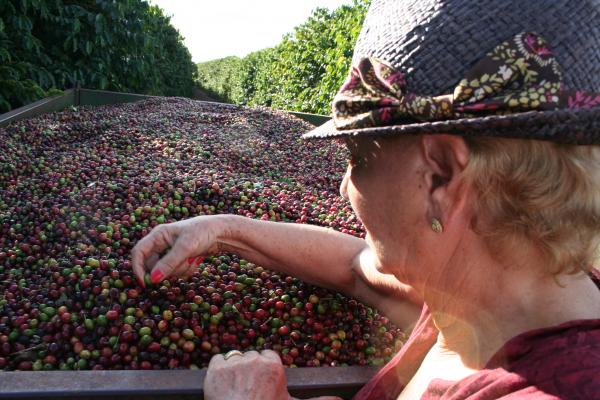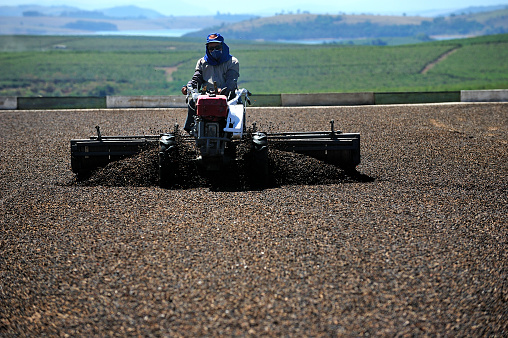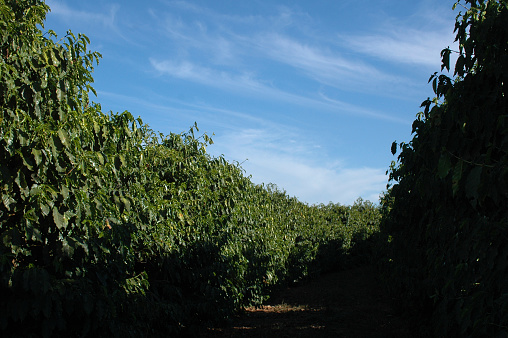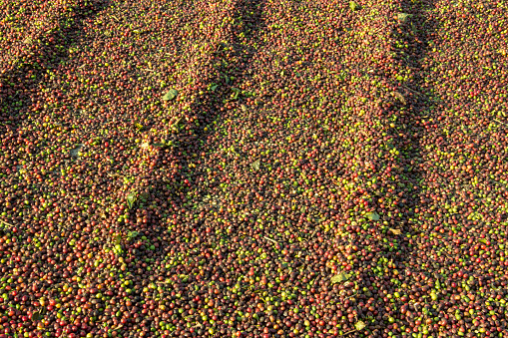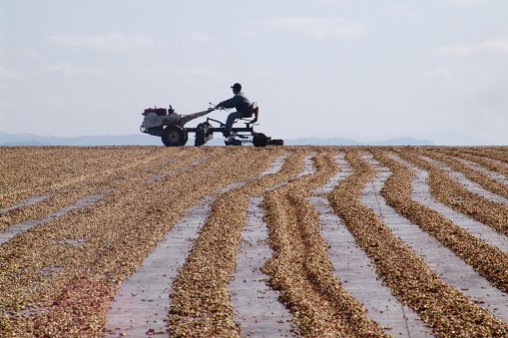Brazil processes its coffee in several different ways, including the wet (washed method), the dry (natural) method and the semi-washed (pulped natural) method.
Fortunately, since Brazil is one of the few countries that has the ideal weather conditions, a majority of the beans are able to be processed naturally (dry). Due to Brazil’s predictable dry and wet seasons, the flowering of cherry maturation is homogeneous. This allows Brazilians to harvest coffee through the picking method or mechanically. Although under-ripe and overripe cherries are also harvested, attentive processing will easily identify and remove these coffee cherries. Brazil has the reputation of having one of the most professional processing systems in the industry.
Dry-Process: (Naturally processed) coffee beans are dried while they are still in the cherry. Prior to drying, only cherries that float will be eliminated. Since the coffees are dried in contact with the sweet mucilage, the coffee will be dense in body, sweet, smooth, and complex. These coffee beans are also one of the most complex to deal with due to the long period of drying times and possibility of fermentation. However, since dry-processed coffees are such a tedious process, Brazil has invested significant money and time to developing new drying systems and drying methods to prevent fermentation.
Wet-Process: Wet-processing coffees is a rather new method of eliminating the four layers surrounding the coffee bean. This technique results in a coffee that is cleaner, brighter, and fruitier. Wet processing is done in a comparatively smaller proportions to dry-processing in Brazil, but offers another cleaner and brighter dimension to Brazilian coffees.
Pulped Natural: The pulped natural method includes the pulping of a coffee, but omitting the fermentation stage to remove the silver skin. The result is a coffee that has characteristics of both a dry- and wet-processed coffee. It is often sweeter than wet-processed coffees, but has some of the body of a dry-processed coffee. However, it also keeps some of the acidity of a wet-processed coffee. This method of processing can only occur in countries where the humidity is low and the coffee covered in the sweet mucilage can dry out rapidly without fermenting. Brazil has made this process method famous and continues to create some of the best pulped-natural coffees in the world. In the 2000 Gourmet Cup Competition, all twenty winners processed their coffee using this natural method.
